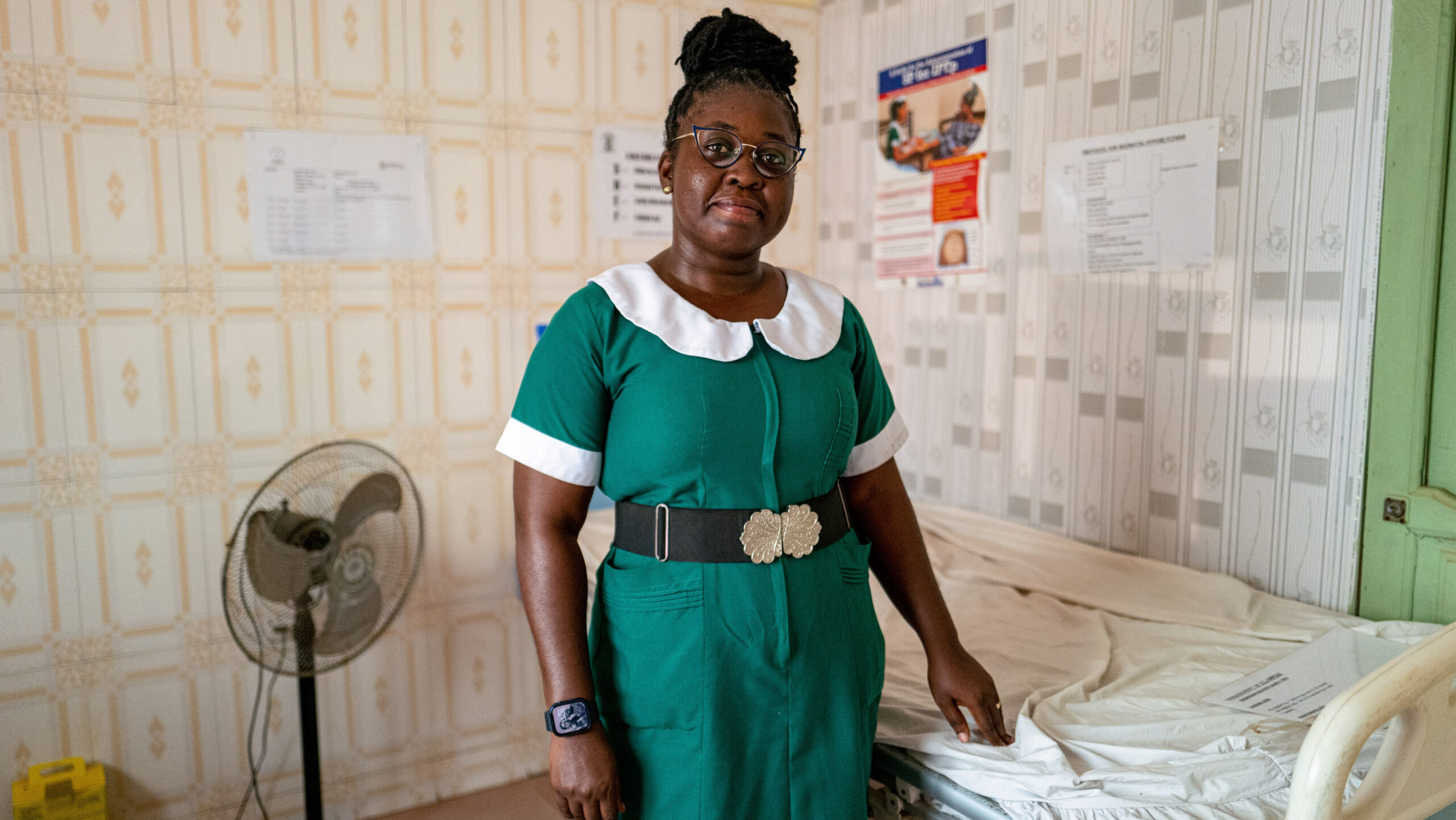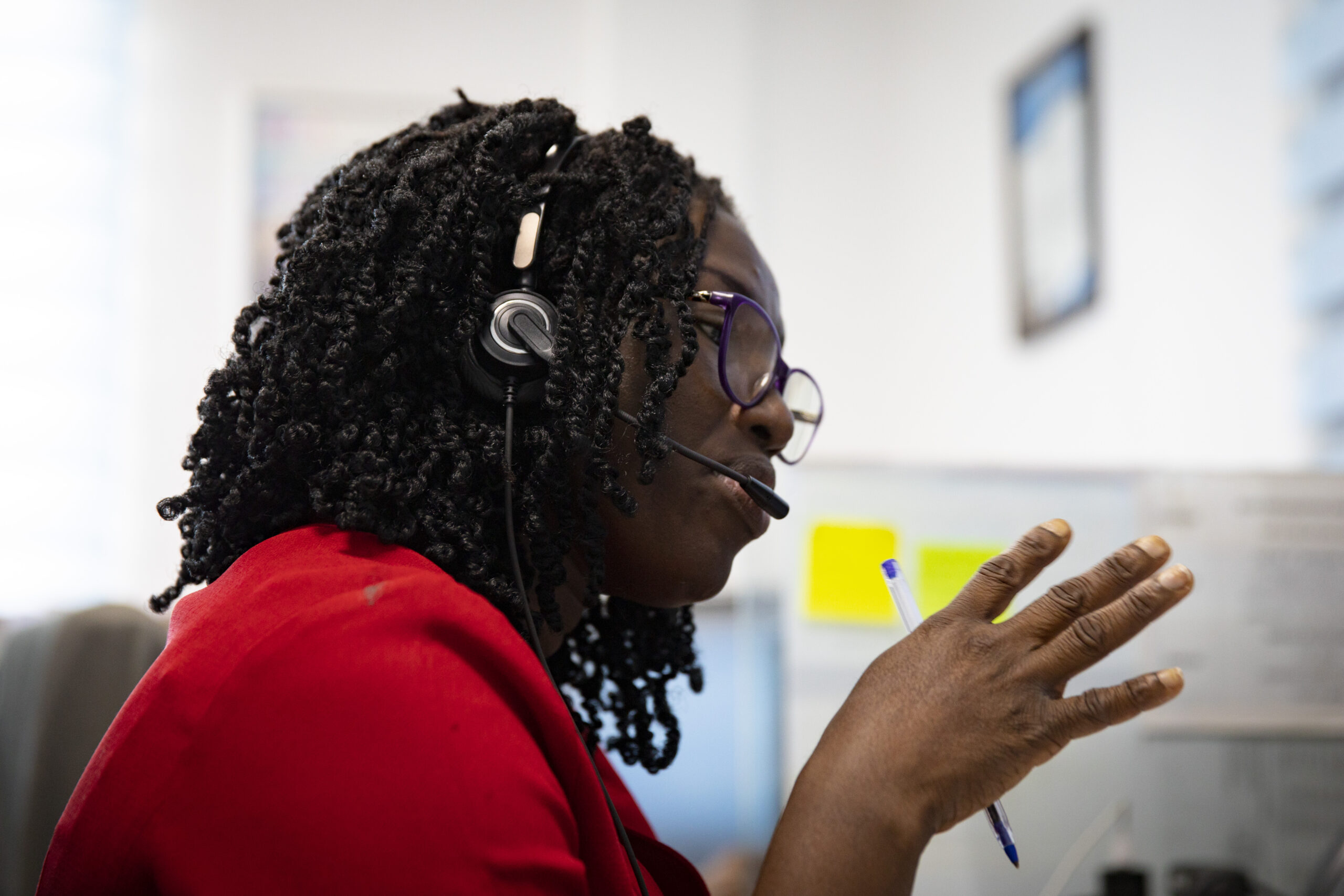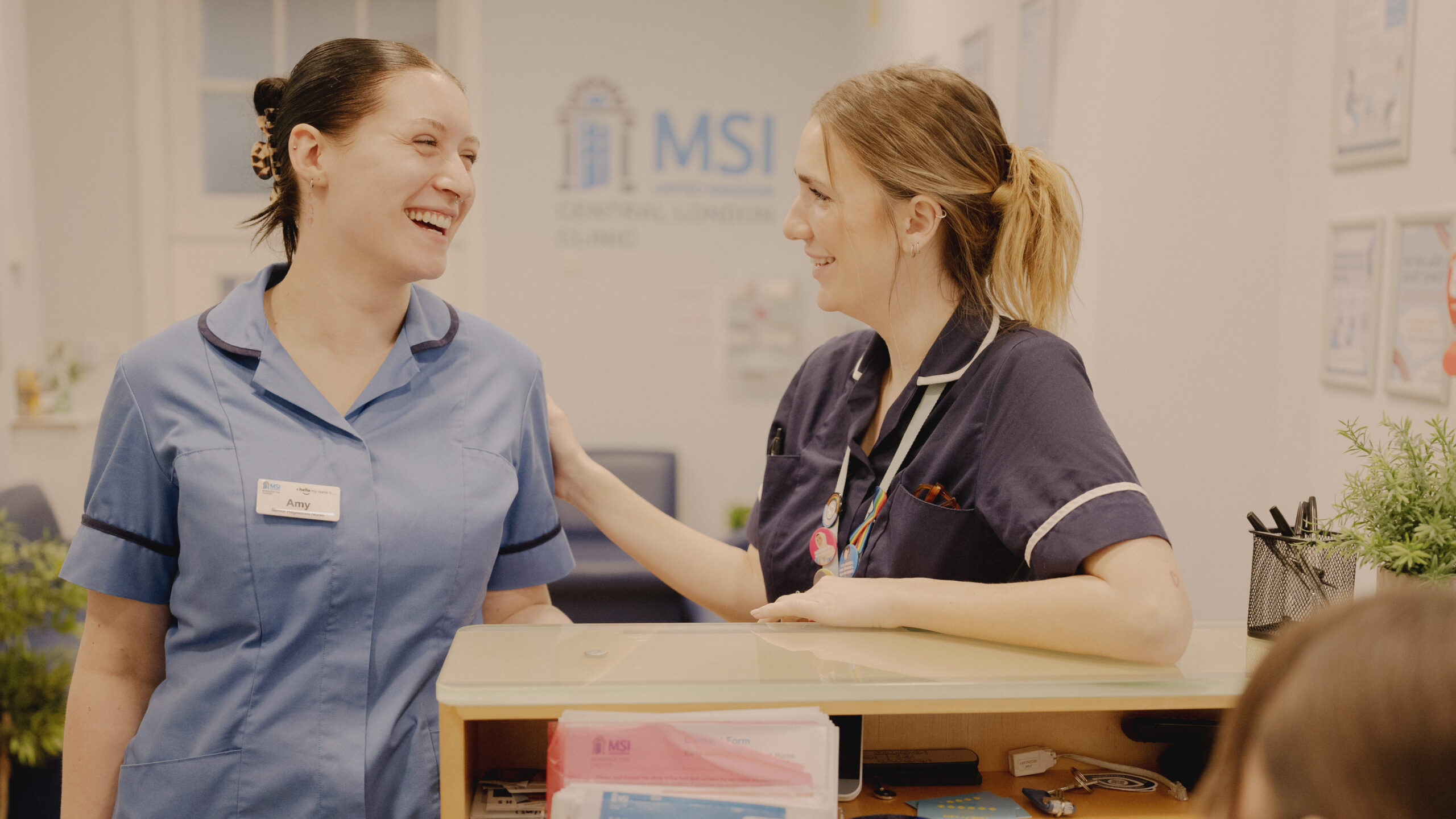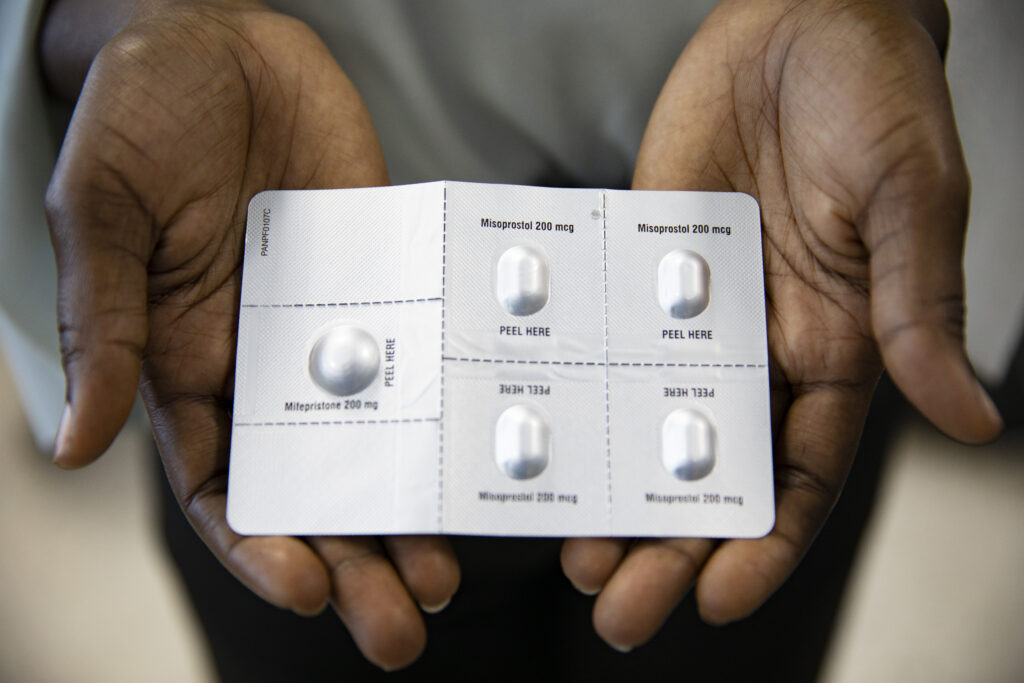
Self-management of medical abortion can be a powerful tool for expanding access to safe abortion.
In this blog, we share five key insights informed by our work around the world on how to support safe self-management.
What is self-managed medical abortion care?
Being pro-choice goes beyond advocating for women’s rights. For MSI, as a global reproductive healthcare provider, it means ensuring women are empowered to choose the type of care that is right for them, whether that’s a surgical abortion, a medical abortion in a facility or self-managing their care at home.
The history of medical abortion is rooted in women supporting women against all odds. In the early 1980s, it was women in Brazil who discovered that misoprostol – originally a treatment for stomach ulcers – could be safely and effectively used to terminate pregnancies. Soon after, French researchers started testing mifepristone to induce abortions, and in 1988 it was approved. Today, in many countries, women can access a ‘combi-pack’ of medical abortion drugs, containing both misoprostol and mifepristone, for a highly effective way to manage their abortion.
Like the pills themselves, self-managed abortion is not new. In many low and middle-income countries, a pharmacy is often the first port-of-call for women seeking to access medical abortion pills to take at home.
In the US and UK, following the pandemic, access to self-managed abortion care has been revolutionised by telemedicine, which allows women to receive the pills by post to self-administer at home, following a telephone consultation. Evidence shows that MSI’s UK telemedicine services are just as safe and effective as in-facility care, and feedback from a sample of our UK clients revealed that two thirds of telemedicine clients would choose at-home abortion care again, should they ever need an abortion in the future.
5 essentials for self-managing a medical abortion
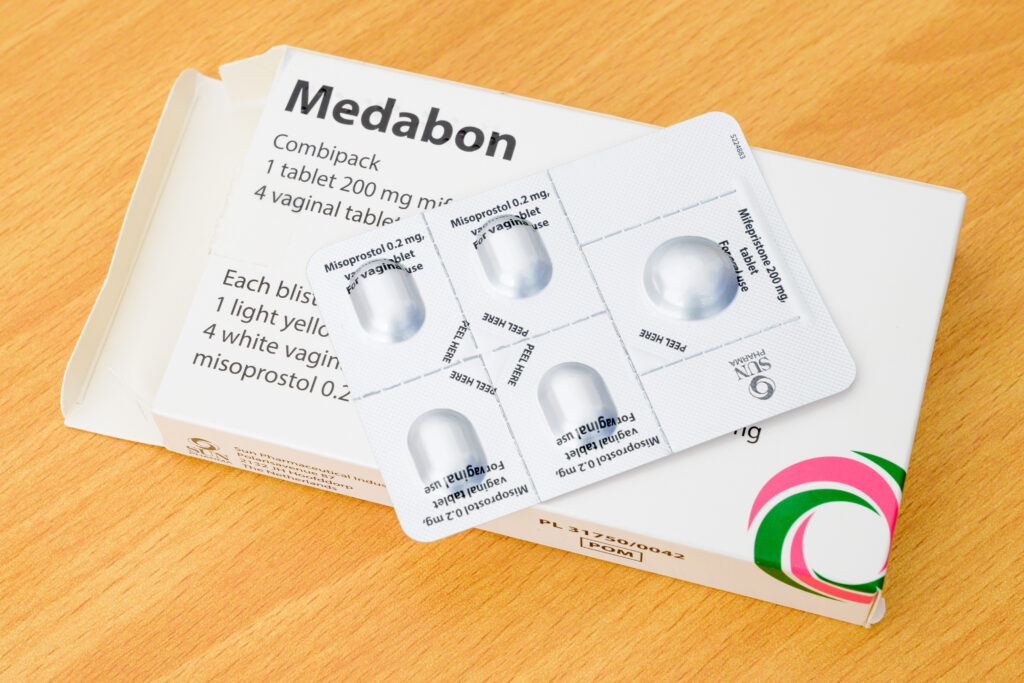
Evidence from MSI and others has proven that with the right support, quality products and access to information on how to take the pills, self-managed abortion care can be safe and convenient.
Based on our research and over 40 years of experience delivering abortion care globally, here are five essentials to help individuals, communities and providers support the safe self-management of abortion:
1. Know your rights
Staying up to date with the country and state laws is essential when accessing or supporting self-managed abortion. To understand the full range of options available and confidently plan pathways to care, it’s necessary to know your rights.
With legislation and access changing quickly, it’s not always easy to keep up. However, The Center for Reproductive Rights has an online map where you can check abortion laws in different countries. Plus, the Guttmacher Institute has a State Legislation Tracker, which can be used to stay up to date with local US sexual and reproductive health laws.
2. Know your body
Self-management is not for everyone. For individuals to make an informed choice around whether self-management is right for them, it is important that they assess their eligibility.
In their recently updated abortion guidelines, the World Health Organisation outlines key factors that women should consider if they’re thinking of self-managing their abortion:
- Being no more than 12 weeks pregnant, which can be ascertained through medical examinations or using a pregnancy calculator, such as the tool from Safe2Choose.
- Double checking that there are no existing medical conditions or factors that could increase risk of complications. For example, women who have blood clotting conditions or severe anaemia are strongly advised against having medical abortions, and women who are currently fitted with an IUD are advised to seek in-facility care.
3. Understand the process
It’s important to understand the process, including how the pills should be taken, and what to expect, for example, how long the process will last, how much pain and bleeding to expect, and any warning signs of possible complications.
For individuals accessing care supported by a facility, for example through telemedicine, this may mean receiving counselling from a midwife and from MSI UK’s online guidance. For others accessing the products at home, this might mean going through written or pictorial instructions within the product or accessing digital support through a reputable platform, such as Women Help Women, Hey Jane or Ami Explains Abortion.
4. Access quality medication
Accessing quality pills from a reputable provider is essential to having a safe and effective abortion. In the UK, for example, MSI provides our own quality co-packaged medical abortion product to all medical abortion clients.
If you’re unsure of which products are available in your country, IPPF has developed a medical abortion commodities database, where individuals can search for information on the availability of quality misoprostol, mifepristone and co-packaged mifepristone and misoprostol (known as combi-packs).
It’s important that products are properly stored. Misoprostol is prone to degeneration when exposed to heat and moisture, reducing effectiveness, and potentially leading to complications. Pills should always be within date and unopened in a ‘blister pack’, meaning each individual pill is stored between two materials (ideally double aluminium) in a ‘bubble’.
5. Know where to access medical care
Abortion care goes beyond the abortion itself. Complications are rare, but just in case they do happen, or questions arise during the process, women seeking to self-manage their abortions should know exactly where they can access medical care before starting.
The ability to self-manage abortions is a success worth celebrating, helping to expand access to safe abortion and the right to have control over our own bodies and futures. At MSI, we believe protecting the right to access this, or any other form of abortion care, is a right worth fighting for.
It only costs £6 per year – or 2 pence per day – for MSI to provide someone with life-changing reproductive healthcare, giving them the power to decide if or when to become pregnant. This reproductive choice helps keep girls in school, supports women to lead, and helps build more equal communities. Support our work to enable reproductive choice globally.






